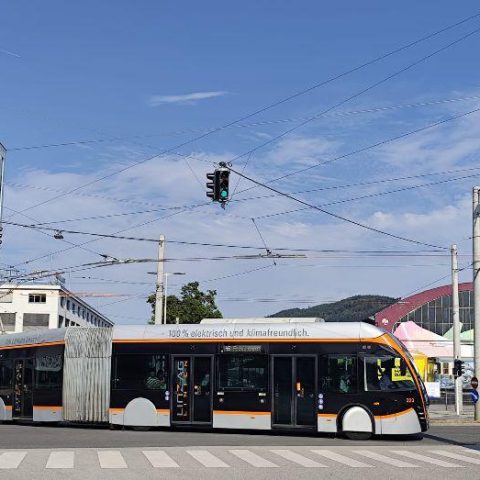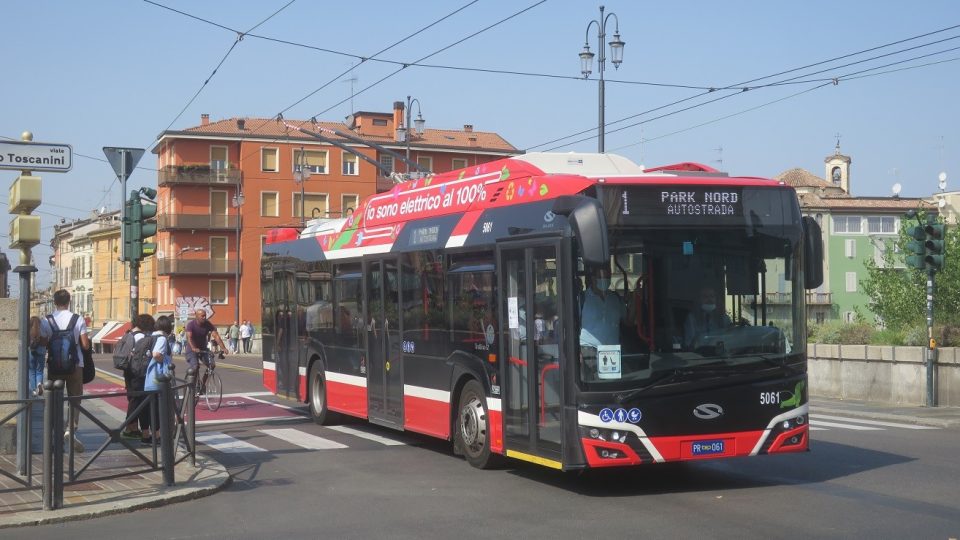Linz, Austria: a new trolleybus line is coming (and a tender for up to 39 units is out)
The trolleybus network of Linz, an Austrian city with 204,800 inhabitants, will soon be expanded by a new line: on Thursday, 6 March, the Linz City Senate approved the financing plans for the new trolleybus line 48. Currently, Linz operates four trolleybus lines, which in practice constitute a major part of the city’s core transit […]

The trolleybus network of Linz, an Austrian city with 204,800 inhabitants, will soon be expanded by a new line: on Thursday, 6 March, the Linz City Senate approved the financing plans for the new trolleybus line 48. Currently, Linz operates four trolleybus lines, which in practice constitute a major part of the city’s core transit network.
Opening picture: G. Mackinger
The new trolleybus line will connect Karlhof, in the north of the city, with WIFI / Linz AG, an interchange hub for tram lines 1 and 2, thereby improving connectivity to areas that have so far been underserved.
Linz: a financing agreement for a new trolleybus line
The financing agreement was finalized in mid-March 2024 and covers both the funding for the Linz regional light rail (RSB) and the construction of the new trolleybus route—line 48—to redevelop areas that are currently not well connected by public transport.
In addition, line 46 was extended by 400 metres on 12 August 2024 to a new terminus named ‘Hafenportal’. A new 18,000-square-metre office complex has been established here, along with retail spaces and restaurants.
Mayor Dietmar Prammer, Deputy Mayor Tina Blöchl, Linz AG General Manager Erich Haider, and Linz AG Managing Director Jutta Rinner are pictured in front of a trolleybus currently operated by Linz AG.
New trolleybuses will be required to operate the new line. The existing fleet includes 20 Exquicity 24-metre articulated trolleybuses built by Van Hool between 2017 and 2019. This fleet will need to be expanded to support the planned increase in service frequency.
The City Senate approved the financing plans for the new Line 48 on Thursday, 6 March 2025.
“I am pleased that we are making significant progress on providing a highly attractive public transport service for the eastern part of Linz,” said Mayor Dietmar Prammer. Deputy Mayor Martin Hajart also welcomed the decision, which clears the way for the next steps in implementing trolleybus line 48. “This project should not incur any additional costs and will create the necessary conditions to move forward with the light rail, which is linked to the planning of line 48, without further delays.”
The City Council approved the financing at its 28th meeting on 13 March 2025.
Tender issued for 12 + 27 trolleybuses
On 20 March 2025, Linz Linien GmbH published a tender in the EU Official Journal for a framework agreement concerning the supply of double-articulated trolleybuses approximately 24 metres in length, including a maintenance contract for the vehicles. The supply contract includes an option to purchase up to 27 additional trolleybuses beyond the base order of 12 vehicles, according to the current project plan.
The tender specifies that the trolleybuses must feature an air-conditioned driver’s cab separated from the passenger area. Additionally, the battery energy storage system must allow for emission-free operation over a distance of at least 10 kilometres on flat terrain.
Delivery of the new vehicles is scheduled to coincide with the opening of line 48, contributing to the expansion of zero-emission mobility in Linz.








